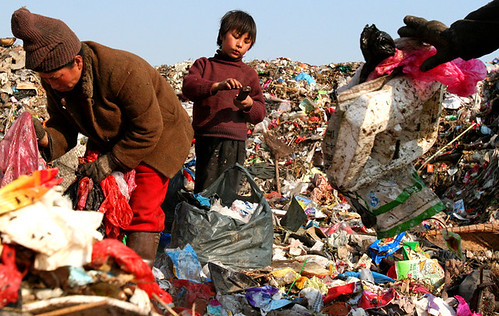Zhao Mu
Jilin university is in financial crisis. It cried for help a few days ago.
A few days ago, the finance office of the Jilin University put up a notice on campus internet: “Notice: A consultative conference on the solution to the financial difficulties of the Jilin University ”
Although this notice is on campus website and “collecting proposals of financial solution” targeting all teachers and students, all people know that the Jilin University's revelation of its embarrassing problems will certainly become a nationwide topic when the notions about higher education institutions' bankruptcy has been circulated widely and hotly debated. And all know who could save these universities who are so indebted that they could not afford to pay interest.
How much money has the Jilin University borrowed crazily from bank? What did they spend the money on?
Let's take a look at the information provided by this notice: “Since 2005, the Jilin University has paid loan interest as high as 150 million to 170 million each year. The university increasingly suffers from expenditure over revenue. The debt is mainly used in two areas. The first one is infrastructure. Another one is salary. We have increased salary to the high level.”
From the annual interest payment as high as 150 million to 170 million yuan, one can estimate the huge amount of loan (it is estimated 3 billion yuan). The crazy loan is for infrastructure and raising salary.
This year, in the National People’s Congress and Chinese People's Political Consultative Conference, Zhou Ji, Minister of Education, responded to the notion of “Bankruptcy of Higher Education Institution” by saying “far away from reality”. He asserted that Chinese universities would not become the “next state-owned enterprise”.
I can understand why Zhou Ji felt so confident in China universities although he failed to provide any convincing reason to argue against the notion of the bankruptcy of China universities. About half year ago when this notion firstly came out, I thought so. But Zhou said that China higher education institutions are not “next state-owned enterprise”. I don't think it is so accurate. From my perspective, the status of China higher education institutions is much higher than general state-owned enterprises. They are “special state-owned enterprises” that should be carefully protected.
Recently, as more and more experts said, according to a strict financial standard, a lot of China universities are bankrupt. The Jilin University revealed its own scandal. It seems to support this viewpoint. Yet, if you think carefully, even though the Jilin University, the most famous university in Jilin province, could not afford the annual interest of 100 million yuan, what could you do to it? Are the banks, who went so crazy that they lent such a huge amount of money to the Jilin University, really brave enough to force the university to apply for bankruptcy through legal procedure? Would the court close down this university and liquidate its asset? Would the banks sell the campus by auction to get back their huge amount of money?
Ah... ah. I can prove to Minister of Education Zhou Ji and the supporters of “bankruptcy” theory that this possibility does not exist at all. And I strongly believe that our great state-owned bank will write off most debts of colleges. Despite without complete statistics, this huge debt already reaches as high as 400 billion yuan.
Now the Jilin University cries for help. Our great state-owned banks have certainly heard that. The leaders of our great state-owned banks have certainly heard that too. If there is no way to force the Jilin University to repay its debt, what should be done? Just cry for help.
In fact, allowing our state-owned banks to write off the debts is not totally unreasonable.
We have known it as early as the year of 2000. The World Health Organization ranked its members according to their ability to mobilize and distribute resources for public health. China was ranked as the 188 th. Among the 191 members, China was ranked as four to the last. China's expenditure in education is even lower than Uganda.
If the state-owned banks write off the debts of these colleges, the excessive loan to so many universities is a correction to the extremely constrained budget. At least, the government enormously increases the per capita investment in “higher education”. This is barely a contribution.
I certainly believe that even though “all Jilin University students and teachers” racked their brain, they could not come up with any solution to this “nearly bankrupt” Jilin University. But I also believe that there is no need for this university to be anxious about its financial crisis.
Be relaxed. Somebody will come to this baby. No matter whether our Chinese taxpayers care about it, they need to pay the debt for this university. The Jilin University is not the only one.
Interestingly, according to the news article about the Jilin University's disclosure of its scandals, a young teacher (Jilin?) said that the Jilin University's confession on its embarrassment is such a “brave” act.
Such a “brave” act.
SourceLabels: China, economy, university














